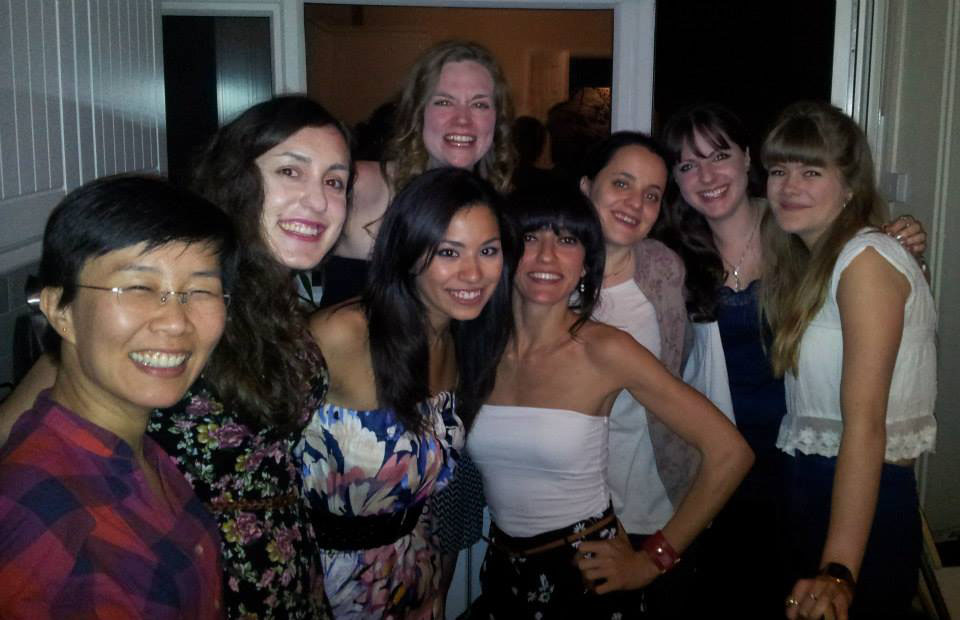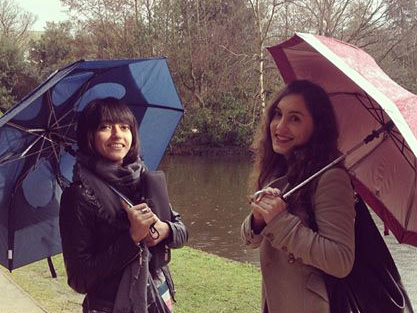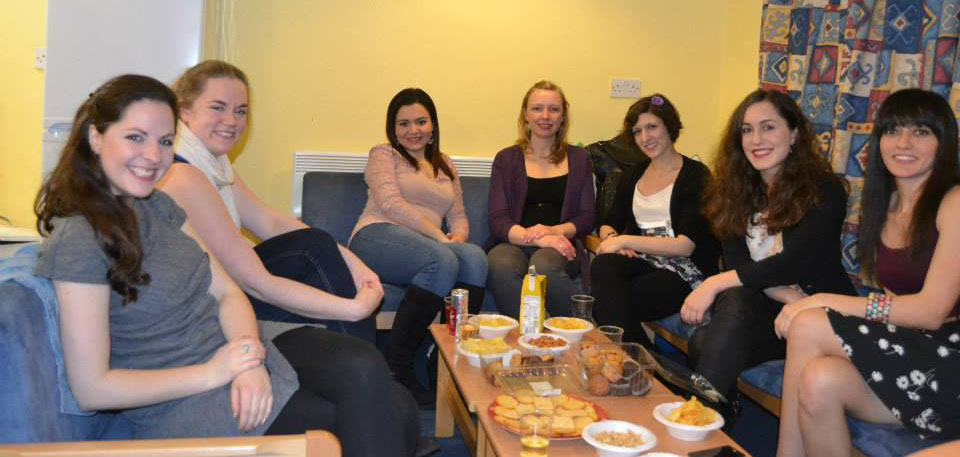A GLOBAL mindset and understanding of your subject from different international perspectives can give you the edge in your chosen career. That's why every year thousands of people from across the world embark on an Erasmus+ master's programme run by the European Commission. Formerly called Erasmus Mundus, it gives postgraduate students and researchers the chance to do a master's degree or doctorate at as many as three universities around the world, at least two of which must be in European Union countries.

Programmes last one year, 18 months or two years. At the end, graduates receive a double degree, a multiple degree or a joint degree. Double or multiple degrees are two or more national diplomas issued by two or more universities. A joint degree is a single diploma issued by two or more universities.
Many Erasmus+ students are self-financed but generous scholarships and fellowships are awarded to excellent students and researchers, covering tuition fees and sometimes a contribution to living and travel expenses.
Currently about 130 master's programmes of high academic quality are on offer in six fields:
Agriculture and Veterinary studies,
Engineering, Manufacture and Construction
Health and Welfare
Humanities and Arts
Science, Mathematics and Computing
Social Sciences, Business and Law
To find out more about Erasmus+ master's and doctorate programmes, head to this website.
Erasmus+ student Majd Hajali, from Syria, is on the Human Rights Practice and Policy programme. She is currently studying at the University of Roehampton in the UK but will also study at Gothenburg University in Sweden and the University of Tromsø in Norway as part of her studies.
She spoke to Student World Online about her experiences.

Student World Online (SWO): How did you find about the Erasmus Mundus (now called Erasmus+) programme and why did you decide to do an Erasmus master’s?
Majd: It was shared in a group on Facebook. The programme in general caught my attention due to the extensive experience that offers by living and studying in three different countries with students from different nationalities and diverse cultures and backgrounds. Having found a specific course on Human Rights Policy and Practice (HRPP) in specific was the key motive to apply for the programme; this field has been my main interest and focus.
SWO: How did you find out about the course and why did you choose the University of Roehampton?
Majd: After checking out the courses offered by Erasmus Mundus, I came across the HRPP course. Based on my academic and professional experience, I believed that this particular course would add to my knowledge, broaden my perspective, and serve my future plans.
I have not essentially chosen the University of Roehampton; the course was designed in advance to include three universities that are well known for their academic specialisation in the field of human rights. Those are Gothenburg University in Sweden, University of Roehampton in the UK, and University of Tromso in Norway.
SWO: What qualifications did you have before you applied?
Majd: I have both academic and professional qualifications. I have majored in Law and received a Master’s degree in International Affairs. I have worked with the United Nations High Commissioner for Refugees in Syria for 2 years; I conducted registration interviews including nationality screening, litigations, and vulnerability assessment. I also conducted voluntary repatriation interviews. Moreover, I have received various trainings in the field of refugee protection and assistance. I have worked with the International Organisation for Migration, Beirut office, where I delivered Cultural Orientation Trainings for Australia bound refugees preparing them for resettlement. I have provided English-Arabic interpretation for pan-Arab refugees during determination and resettlement interviews, family reunion cases at the Dutch Embassy in Beirut as well as Dutch Cultural Orientation trainings.
SWO: Did you have to pass an English test? If so, which test, how long did it take, how much did it cost and where did you take the exam?
Majd: I did not have to pass an English test as I was exempted.
SWO: Was it difficult to apply?
Majd: It was somehow complicated for me to apply due to the unrest in Syria and my mobility between Damascus and Beirut. However, the application and paperwork required were clear and straightforward.
SWO: Tell us about the course. How long does it last? What are you learning?
Majd:The course lasts for 2 years. It starts in Gothenburg University in Sweden. The second semester is to be taught at University of Roehampton. That is followed by a semester in the University of Tromso. The last semester will be spent in one of the above-mentioned 3 countries based on the research (dissertation topic) to be carried out by each student.
So far, the course has offered outstanding and extensive knowledge in the field of human rights. It provides a wide variety of theoretical and practical experience covering various topics such as, globalisation, society and social structure, managing NGOs, and legal and political processes within the international human rights system. Apart from the academic learning process, having the opportunity to live and experience three different countries, being exposed to three diverse educational systems as well as rich and varied cultures are key factors in the learning process. Living with 18 fellow students from different nationalities and learning about their cultures, beliefs and mind-sets is also a crucial contribution to my personal development.

SWO: Are there many international students on your course?
Majd: We are 19 on the programme including myself. They represent many countries such as, France, Canada, Australia, Brazil, Georgia, Thailand, Lebanon, Germany, Singapore, Argentina, Italy, India, Britain, Kosovo, The Netherlands, and Syria.
SWO: Has it been easy to make friends? Do you get homesick?
Majd: It has been really easy to make friends with the rest of the group due to the fact that we lived together during the first semester in Gothenburg. That gave us the chance to get to know each other and become friends.
I personally do not feel homesick. I am not attached to my country or culture. Having lived away from my family and hometown, Damascus, for a few years now facilitates my adaptation to new cultures. Interacting and working with people from different nationalities and backgrounds has also broadened my perspective, which gives me the ability to be open to new diverse mentalities and outlooks.
SWO: Do you get any extra support as an international student, such as English lessons/ help with accommodation/ cultural help/ student societies?
Majd: As an international student, we are assisted with accommodation in the three countries. Each university offers an induction week at the beginning of the semester to help us get the paperwork required done, get accustomed to the new city as well as providing us with useful information about the academic life. Each university offers language courses – English or local language lessons. They organise social events and cultural activities as well.
SWO: How much are your tuition fees? Has it been a worthwhile investment so far?
Majd: I am on a scholarship. However, the tuition fees, as provided online, are around 15.400 Euros for non-European students and 7.500 for Europeans - subject to change.
SWO: Did you get financial help, such as a scholarship or grant? If so, where from?
Majd: I am on a scholarship offered by the European Commission.
SWO: Where are you living (eg: university-owned hall, private hall, flat, house-share etc) and how much is your rent?
Majd: I have been living on on-campus accommodations so far. The rent varies from one country to another.
SWO: Do you have any advice for those interested in the Erasmus Mundus programme?
Majd: It is a great opportunity on both personal and academic levels. Anyone interested in a master’s degree should invest in such a programme due to its richness. For those interested in Erasmus Mundus programme, I would advise them to choose an intriguing course they are passionate about regardless of the preselection of countries the course comprises of. Another advice is to make the best out of this experience because it is the opportunity of a lifetime.
SWO: How would you sum up your experience of Erasmus Mundus?
Majd: All in all, it is an outstanding experience. On the one hand, I have been able to enhance my knowledge in the field of human rights in particular as well as in relation to other disciplines such as law, sociology, international relations, and political science. One of the advantages of this course is offering a practical experience. Applying international legal instruments to real-life situations and human rights’ cases has developed my analytical skills and ability to practically use human rights instruments. I had the opportunity to intern in an NGO, the British Red Cross, as a requirement for one of the courses at the University of Roehampton. As a result, I was able to reflect on NGOs’ leaderships and management. I am now more aware of the managerial aspects of NGOs and civil society organisations. On the other hand, I have been exposed to complete new cultures, which has boasted my personal skills. That has also enriched my tolerance and sensitivity to cultural diversities. Living with my fellow students from different nationalities is another exceptional experience that has added to my personal skills as well.
SWO: What do you plan to do after you graduate?
Majd: I plan to work with NGOs that are specialised in women’s rights. I aim at gaining more experience and knowledge in this field before I start an NGO that works for the protection and promotion of Syrian women and girls’ rights. Working with the UN system again could be another possibility I am willing to explore.